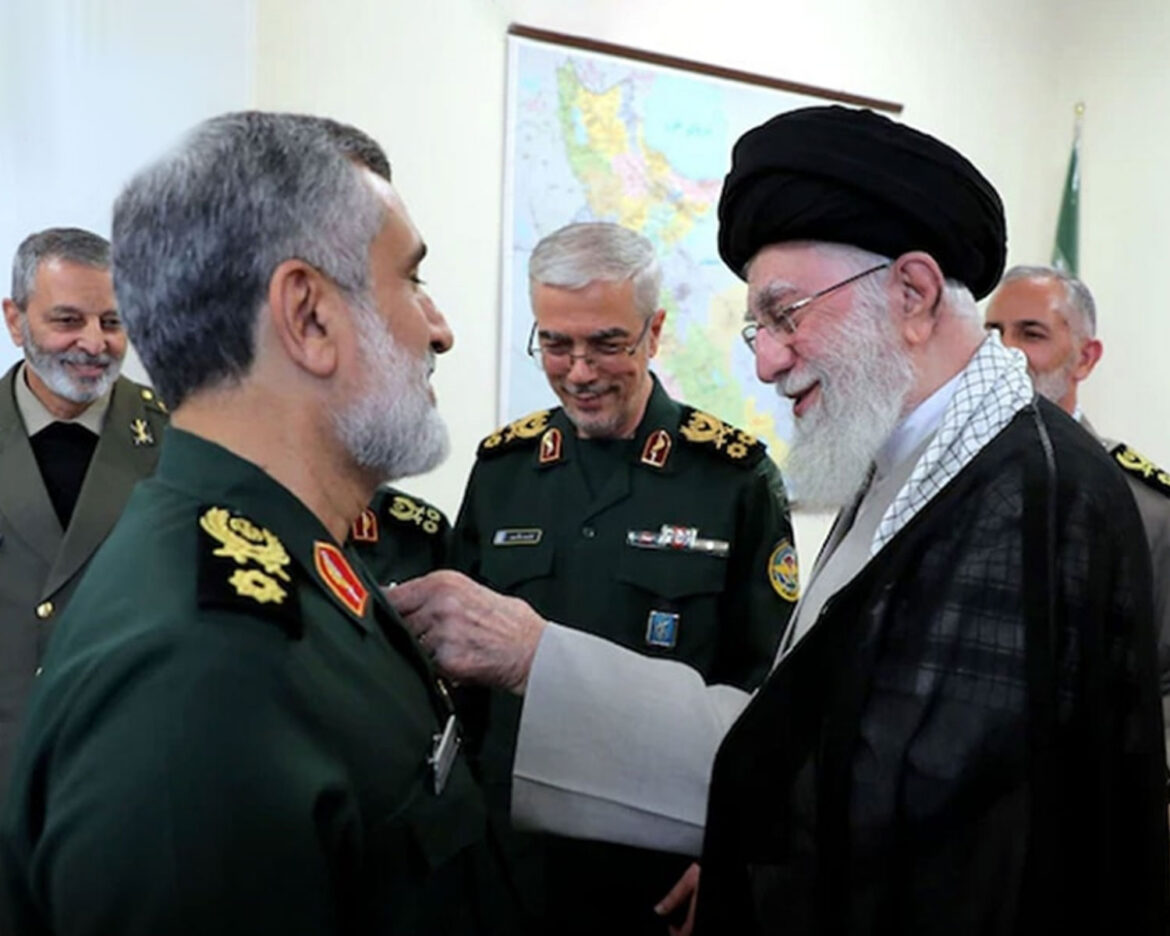Tehran, October 7, 2024 — In a grand ceremony attended by top military officials and political leaders, Iran has awarded General Amir Ali Hajizadeh, the commander of the Islamic Revolutionary Guard Corps (IRGC) Aerospace Force, the prestigious “Medal of Victory” in recognition of his leadership in the recent missile strikes against Israel.
The attack, which took place last week, was one of the most significant escalations in the ongoing conflict between Israel and various Iranian-backed factions in the region. Iranian sources claim that the strikes, which targeted critical Israeli military and infrastructure sites, were a direct response to Israel’s alleged involvement in operations against Iranian assets and personnel in Syria and beyond.
During the ceremony, Iranian Supreme Leader Ayatollah Ali Khamenei, who presented the medal to General Hajizadeh, praised the missile strikes as a “historic achievement” that demonstrated Iran’s growing capabilities in missile technology and its resolve to defend its interests against foreign aggression.
“In a time of unprecedented pressure from global imperialist forces, General Hajizadeh has shown unparalleled strategic brilliance and courage,” Khamenei said. “This victory is a symbol of Iran’s determination to defend its sovereignty and stand firm in the face of tyranny.”
The attack, which used a combination of short and long-range precision missiles, reportedly inflicted heavy damage on key Israeli defense systems, including air defense installations and military command centers. Iranian state media hailed the operation as a tactical success, citing the precise nature of the strikes and their impact on Israel’s ability to respond.
General Hajizadeh, known for his role in developing Iran’s missile and aerospace capabilities, has long been a central figure in the country’s military strategy. Under his leadership, the IRGC Aerospace Force has made significant advancements in missile technology, with Iran now claiming to have one of the most advanced missile arsenals in the region.
The missile strikes have drawn a sharp response from Israel, which has vowed retaliation and has increased its military readiness in anticipation of further confrontations. Israeli officials have condemned the attack as “irresponsible and dangerous,” warning of severe consequences for any further escalation.
While the exact toll of the attack remains unclear, sources in the region suggest that both military and civilian infrastructure were hit. In a rare statement, the Israeli Defense Forces (IDF) acknowledged that they had sustained “significant damage” but stressed that their air defenses had intercepted several incoming projectiles.
The awarding of the “Medal of Victory” to General Hajizadeh is seen as a clear message to both regional and international powers that Iran intends to assert its military might and expand its influence in the Middle East. It also signals a further hardening of Tehran’s stance against Israel, which has long been a target of Iran’s rhetoric and military strategies.
The international community has expressed concern over the growing tensions in the region, with several nations calling for restraint and urging both sides to avoid further escalation. However, with both Israel and Iran steadfast in their positions, the path toward de-escalation seems increasingly uncertain.



